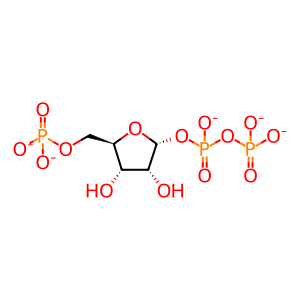Reaction: Defective HPRT1 does not convert guanine or hypoxanthine to GMP or IMP
Normally in humans, guanine and hypoxanthine can be salvaged by conversion to GMP and IMP, catalyzed by HPRT1 (hypoxanthine guanine phosphoribosyltransferase). In the absence of HPRT1 activity, however, accumulated guanine and hypoxanthine are catabolized by XDH (xanthine dehydrogenase / oxidase) to urate. Hundreds of variants in HPRT1 have been identified, associated with phenotypes ranging from Lesch-Nyhan Syndrome in individuals with little or no HPRT1 activity, to hyperuricemia and gout in individuals with higher levels of HPRT1 activity. Here, we have annotated the failure of normal guanine and hypoxanthine salvage reactions due to three missense mutant alleles of HPRT1, originally identified in patients with Lesch-Nyhan Syndrome (Davidson et al. 1989, Fujimori et al. 1992, Laróvere et al. 2007) and shown when expressed in vitro to encode proteins with no detectable catalytic activity (Fu & Jinnah 2012).
Reaction - small molecule participants:
PRPP [cytosol]
Reactome.org reaction link: R-HSA-9734274
======
Reaction input - small molecules:
5-O-phosphonato-alpha-D-ribofuranosyl diphosphate(5-)
Reaction output - small molecules:
Reactome.org link: R-HSA-9734274

